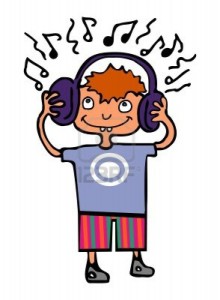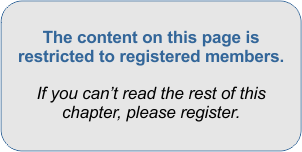
Ideally, your online presence should be the extension of your offline (real-world) presence. Not the other way around (though this is certainly possible as well, as we’ll show).
Online promotion allows you to scale your popularity and business in a much more dramatic way that you could ever do offline – especially if you have a limited budget.
So, how DO you build an audience?
[emember_protected for=2-3-4-5]
 Start from where you are. Your local market is the true proving ground. You also have the added advantage of casually and personally meeting with your audiences and learning from them directly. Writing and performing for people you know – and getting their feedback in real time – is the fastest way to build your craft and to well and truly spread your artistic wings. Yes, there are many exceptions to this, but before you decide you’re one of them – check your local market out first!
Start from where you are. Your local market is the true proving ground. You also have the added advantage of casually and personally meeting with your audiences and learning from them directly. Writing and performing for people you know – and getting their feedback in real time – is the fastest way to build your craft and to well and truly spread your artistic wings. Yes, there are many exceptions to this, but before you decide you’re one of them – check your local market out first!
- Take it easy and don’t stress. Build your fan base one person at a time. Integrate your offline fan submission forms with your online ones. In an upcoming section I will show you how to enable member list building on your site where people can join without you nannying them – but initially you’ll want to either encourage people to sign up to your mailing list, or sign them up yourself, manually.
- Always try to (gently) engage your fans. This is where the Internet truly excels as you can use your social media for this and scale your interactions easily. How do you “engage” them? Many ways. How about polling them with simple questions? “This – or that?” or “Who’s your favorite 70’s act?” or anything which can be answered simply and tickles the reader to want to weigh in. Another way is to have free giveways or competitions. Yet another is to have a discussion going or invite comments. Interaction is one of the most important ways in which your band site can become visible quickly, because search engines like Google actually look for interactivity and reward the busiest sites accordingly.
- Employ basic psychology when communicating with your audience. Don’t address them “all”. Address them individually. Keep it short, ideally light or humorous, interesting – and above all, always look for ways to allow THEM to shine. Be controversial without being rude, but also don’t be afraid to tick some people off. Be real and let your audience be real with you! Oh, and don’t forget to use “calls to action” (CLICK on this, DO that, SIGN UP here, COMMENT over there, etc).
- Reciprocate and communicate. Tag your fans in your posts or photos and thank them if they do the same for you. Be approachable, start conversations – make them feel as important as you would like to feel if the shoe were on the other foot. Always treat your audiences like they’re already your friends. They are.
- Some of your fans are more special than others. Acknowledge them. Reward them. They’re the prime candidates for your VIP invites. Or send out “tickets for two / bring a friend,” give them your most exclusive merchandise, mention them in your newsletter, personally welcome them to your gigs – anything that builds loyalty.
- Remember that marketing works best when people know, trust and appreciate you. Build honest, friendly relationships with your supporters.
 Keep your eyes open for “super fans”. They’re the ones who cheer the loudest, are first to get up and dance to your music, who seek you out to have a chat after a show. Super-fans are your first potential customers who will lead the charge once you’re ready.
Keep your eyes open for “super fans”. They’re the ones who cheer the loudest, are first to get up and dance to your music, who seek you out to have a chat after a show. Super-fans are your first potential customers who will lead the charge once you’re ready.
- Remember that your presentation and “image” – which includes your social pages and your own website – must reflect not merely “you” but equally, YOUR FANS. When they see you, they should see themselves.
- Build your audience without rushing. Slow and steady wins the race. Rush slowly.
- Don’t hide or “go underground” for extended periods of time (my natural tendency). Remain visible and active.
- Take feedback onboard graciously and gratefully. Few people know how to listen. Be one who does. Besides, if someone takes the time to tell you their opinion, even if it’s critical, it means they care enough about you to do so. Show your appreciation and NEVER take offense.
- Learn to empathize with your audience. See “you” through their eyes. But also, don’t forget that you’re an artist – and they’re not. Being associated with an artist reflects on a person’s status, perhaps even sex appeal – and it often provides an ego boost. Be aware of that and don’t abuse that position.
- When performing ALWAYS give it all you’ve got. Your fans should have many reasons for liking you. Your dedication. Not just your music. Your musicianship, image, artistry, originality, humor, craziness, depth, quality of your song, how nice you are to your fans, your charm, etc.
- Always keep your fans up to date on everything that’s going on with your career.
- Be part of multiple social networks and online music groups. But don’t forget that your best social network is your own list!
- When you make a video, why not include some of your fans in it? Do you think this would help it go viral…?
- Tell your fans about your other fans. Then inform them that they got a mention in your newsletter or got tagged on your photo, etc. Will this help spread your message…?
Be exclusive with your music, inclusive with your relationships.
- When communicating with your fans, newsletters aren’t the only way. You can also consider emails, phone calls, audio messages, SMS, video messages – the only limit is your imagination.
- Always BRAND yourself. When emailing someone, make sure your logo and contact along with links to your main site are there. Oh, and be sure you double check your spelling and style!
- If you want something – ask for it. Ask them to join you. Ask them to share your music. Ask them to tell their friends. Ask them to “like” your page, “follow” you, etc.
- Your primary means of communication with your fans online will be through blogging, videos and social networks. Each deserves your attention and each needs to be regular. Consider rotating them, if you’re short on time and resources.
- Punctuate your most important events with press releases. You can do most of those for free, but sometimes paid PR’s are preferable (we’ll look at this more closely in the third section of this course).
- Make sure your online press kit is always up to date and it should also contain a link for new fans to sign up through.
- Make sure you have business cards, fliers, postcards, fan signup forms, etc prepared when you go out to gig.
- Keep track of your list. At what pace is it growing? What can you improve?
These are just some of the most obvious things to keep in mind when building your fan base. We’ll go into more details as well as look at the best tools which will help you with this, in further sections of this course.
[/emember_protected]
 |
 |
 |
| Book 1 – Chapter 14 If There Was ONE Thing… |
Course Overview | Book 1 – Chapter 16 Objections |
Book 1: 1, 2, 3, 4, 5, 6, 7, 8, 9, 10, 11, 12, 13, 14, 15, 16, 17, Overview

